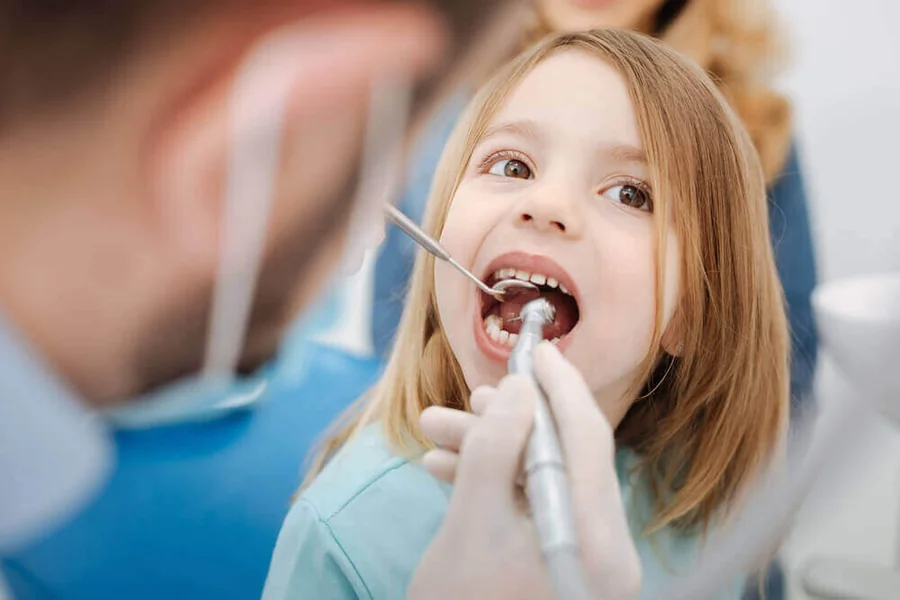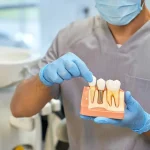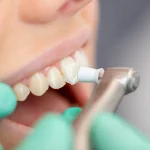Many parents worry about their child’s dental health. They often fall for myths that can misguide their care decisions. When it comes to the well-being of your child, you need facts. Visiting a children’s dentist in Florissant, MO ensures you get accurate information straight from experts. You may hear that baby teeth don’t matter. Some might say that children don’t need to brush regularly. Others believe that sugary snacks won’t cause harm if consumed in moderation. These myths can derail your efforts for a healthy smile. Ignorance can lead to bigger issues later. Dental care is not just about avoiding a toothache. It’s about laying a solid foundation for lifelong oral health. We’ll cut through the clutter and set the record straight on these myths. Let these truths guide you to make informed decisions, offering your child the protection they deserve.
Myth 1: Baby Teeth Don’t Matter
Many believe that baby teeth are unimportant because they fall out eventually. This couldn’t be further from the truth. Baby teeth hold space for permanent teeth. They help your child chew and speak clearly. Ignoring care can lead to cavities, pain, and infection. According to the Centers for Disease Control and Prevention, untreated cavities can cause issues in speaking, eating, and learning. Prioritizing early dental care sets the stage for a lifetime of good health.
Myth 2: Brushing Isn’t Necessary for Young Children
Some parents think children don’t need to brush regularly. This is a mistake. Brushing removes food particles and bacteria. It prevents plaque buildup, which can lead to cavities and gum disease. Start cleaning your baby’s gums with a soft cloth even before teeth appear. Once the first tooth erupts, use a small, soft-bristled toothbrush. Teach your child to brush twice daily. Instill these habits early to prevent dental issues later.
Myth 3: Sugary Snacks in Moderation Are Fine
Moderation is key, but overindulgence in sugary snacks can be harmful. Sugars feed bacteria that produce acids, leading to tooth decay. Treats are fine occasionally, but ensure your child brushes afterward. Choose healthy alternatives like fruits and vegetables. Encourage water instead of sugary drinks. The American Dental Association offers useful tips for a tooth-friendly diet. A balanced diet supports both oral and overall health.
Myth 4: Cavities Aren’t a Big Deal
Cavities might seem minor, but they can lead to serious problems. Untreated cavities can cause pain, infection, and loss of teeth. This can affect your child’s eating, speaking, and even self-esteem. Regular dental check-ups catch issues early, preventing escalation. Dental visits every six months ensure healthy development and track progress. Don’t underestimate the value of preventive care.
Comparison Table: Baby Teeth vs. Permanent Teeth
| Feature | Baby Teeth | Permanent Teeth |
|---|---|---|
| Number of Teeth | 20 | 32 |
| Appearance Age | 6 months to 3 years | 6 years and older |
| Purpose | Chewing, speaking, space holding | Chewing, speaking, permanent spacing |
| Longevity | Temporary | Permanent |
Final Thoughts
Debunking myths is crucial for effective pediatric dental care. Baby teeth matter for your child’s development. Regular brushing is essential. Limit sugary snacks and don’t ignore cavities. These steps prevent dental issues and foster lifelong habits. Seek guidance from experts like your children’s dentist in Florissant, MO. Investing in oral health now pays off later. Empower yourself with knowledge to keep your child smiling confidently.







